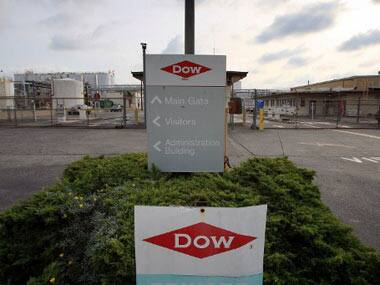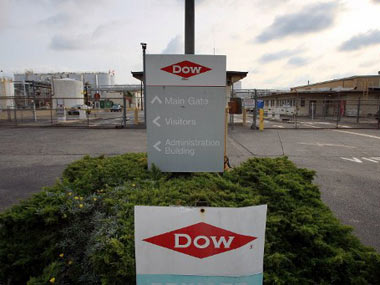The news that Stratfor, the US-based private security thinktank, “monitored and analysed” Bhopal activists on behalf of Dow Chemical, which owns the erstwhile Union Carbide plant where a deadly gas leak in December 1984 killed over 2,000 people, has
given rise to much indignation
in India. (More than 8,000 more died from gas-related diseases over the years.) Bhopal activists, who have for nearly three decades been campaigning for fair compensation for the victims, point to the allegations of “spying”, revealed by whistleblower website WikiLeaks’ release of Stratfor emails hacked by the Anonymous hacker group, as evidence of the kind of “dirty tricks” employed by Dow to deny their demand. Dow responded to the leak to suggest that it was only seeking out information so as to protect its employees and safeguard its property “from whose who would threaten, disrupt and misrepresent” the company. But Bhopal activists say they are considering suing the company over the allegations of ‘spying’. Dow, which is
at the centre of a controversy
surrounding the London Olympics, of which it is one of the sponsors, may well be, as the activists suggest, a heartless multinational corporation looking to conduct corporate espionage to limit its liabilities. But it’s a fair bet that its faith in hiring Stratfor, which has been called a “CIA for hire", may have been vastly overstated. [caption id=“attachment_227826” align=“alignleft” width=“380” caption=“Every once in a while, corporate clients like Dow also request Stratfor to report back on whether the Bhopal activists had any plans to disrupt Dow events on the anniversary of the Bhopal gas leak. AFP”]
 [/caption] Other leaked mails from the first trache that WikiLeaks has published indicate that Stratfor may have been stringing along Dow and other large corporations for big money, and passing off virtually worthless secondary source information as top-notch intelligence briefings. If anything, in such instances, it is corporations like Dow that have been conned by Stratfor into coughing up megabucks for mumbo-jumbo. Stratfor, which was founded by US strategist
George Friedman
, touts itself as a “
provider of geopolitical analysis
”, and an agency that helps its clients – from corporates to governments - make sense of a dizzyingly complex world. Or as it claims, “gain a thorough understanding of international affairs, including what’s happening, why it’s happening, and what will happen next.” Multinationals and governments are hungry for ways to manage geopolitical and geoeconomic risks and seek out answers to such questions as: “Will Israel attack Iran, and if so when?” “Will the Chinese economy experience a hard landing?” Since they don’t always have access to operatives on the field, they “outsource” such operations to agencies like Stratfor, which claims to have the ability to secure classified intelligence inputs around the world. Every once in a while, corporate clients like Dow also request Stratfor to report back on whether the Bhopal activists had any plans to disrupt Dow events on the anniversary of the Bhopal gas leak. Likewise, in the run-up to the 2008 Olympics in Beijing, Coca-Cola enquired about China’s stability; ahead of the 2009 Winter Olympics in Vancouver, the company asked Stratfor to ferret out some intelligence on the strength of the animal-rights organisation PETA in Canada. If Stratfor really had secured exclusive intelligence in such cases, perhaps it might have been able to do justice to the amounts it billed clients. But the hacked emails themselves reveal (and independent corroborate it) that Stratfor in many cases peddled secondary source information – including from newspapers – and packaged it to seem like authentic intelligence from the field. In other instances, it passed on rumours recycled from media narratives without validation. As civil liberties acvitist and WikiLeaks legal analyst
Trevor Timm noted
, “These emails read like STRATFOR is full of serial exaggerators & bullshit artists. Should we really trust any rumors in them (without) 2nd source?” Even prior to the latest disclosures, Stratfor has come in for criticism for peddling rumours (that were proved spectacularly to be untrue) and for getting even the big picture on the world of the future – which it claimed was its area of expertise - horribly wrong. Indicatively, in 1991, Friedman, the man who claims he can see tomorrow,
wrote of
The Coming War With Japan
, in which he prophesied that with the end of the Cold War in 1989, Japan would reassert its dominance over the Pacific, which would lead it to conflict with the US. That prediction couldn’t have been more wrong. Others point to Friedman’s similar failing to see the dramatic
changes that swept Egypt
. And Stratfor’s
intelligence on Iran was dismissed
as being of “low grade”. And in 2010, Stratfor
peddled the sensational market-moving rumour
that the chairman of China’s Central Bank, Zhou Xiaochuan, had defected from China after running up a loss of over $430 billion on the bank’s holdings of US Treasuries. Even as of today, Zhou remains firmly in his saddle, as a living testimony to an irresponsible bit of “intelligence” from a discredited agency that peddles conjectures and gossip for big money. Perhaps the most embarrassing revelation for Stratfor from the WikiLeaks’ exposure relates to a document that was never intended for public circulation. It is a Glossary of Terms intended halfways in jest that defines various intelligence-related in-house jargon evidently for newbie sleuths. It defines a ‘Briefer’ (someone at Stratfor who briefs clients) as a person who has the ability to “rapidly assimilate complex material, deliver routine news as if it were reports of the Second Coming” - and get the client to pay up for more services. It explains one of the methods by which the Briefer can bamboozle the client. “When the Briefer has obtained zero valuable intelligence from analysis, he finds something in the inside of the morning paper, powers up a view graph, and ‘Briefs the Times’.” Customers, it says, are “frequently impressed. It’s a hoot.” Given Stratafor’s abysmal track record of flawed intelligence and an inability to read the big picture right – and the way it is manifestly milking its clients for money and purveying secondary search information as high-value intelligence, Bhopal activists have nothing to agonise over – even if they have reasons to be concerned about Dow Chemical’s mala fide intentions. The joke, if anything, is on Stratfor and on Dow.
[/caption] Other leaked mails from the first trache that WikiLeaks has published indicate that Stratfor may have been stringing along Dow and other large corporations for big money, and passing off virtually worthless secondary source information as top-notch intelligence briefings. If anything, in such instances, it is corporations like Dow that have been conned by Stratfor into coughing up megabucks for mumbo-jumbo. Stratfor, which was founded by US strategist
George Friedman
, touts itself as a “
provider of geopolitical analysis
”, and an agency that helps its clients – from corporates to governments - make sense of a dizzyingly complex world. Or as it claims, “gain a thorough understanding of international affairs, including what’s happening, why it’s happening, and what will happen next.” Multinationals and governments are hungry for ways to manage geopolitical and geoeconomic risks and seek out answers to such questions as: “Will Israel attack Iran, and if so when?” “Will the Chinese economy experience a hard landing?” Since they don’t always have access to operatives on the field, they “outsource” such operations to agencies like Stratfor, which claims to have the ability to secure classified intelligence inputs around the world. Every once in a while, corporate clients like Dow also request Stratfor to report back on whether the Bhopal activists had any plans to disrupt Dow events on the anniversary of the Bhopal gas leak. Likewise, in the run-up to the 2008 Olympics in Beijing, Coca-Cola enquired about China’s stability; ahead of the 2009 Winter Olympics in Vancouver, the company asked Stratfor to ferret out some intelligence on the strength of the animal-rights organisation PETA in Canada. If Stratfor really had secured exclusive intelligence in such cases, perhaps it might have been able to do justice to the amounts it billed clients. But the hacked emails themselves reveal (and independent corroborate it) that Stratfor in many cases peddled secondary source information – including from newspapers – and packaged it to seem like authentic intelligence from the field. In other instances, it passed on rumours recycled from media narratives without validation. As civil liberties acvitist and WikiLeaks legal analyst
Trevor Timm noted
, “These emails read like STRATFOR is full of serial exaggerators & bullshit artists. Should we really trust any rumors in them (without) 2nd source?” Even prior to the latest disclosures, Stratfor has come in for criticism for peddling rumours (that were proved spectacularly to be untrue) and for getting even the big picture on the world of the future – which it claimed was its area of expertise - horribly wrong. Indicatively, in 1991, Friedman, the man who claims he can see tomorrow,
wrote of
The Coming War With Japan
, in which he prophesied that with the end of the Cold War in 1989, Japan would reassert its dominance over the Pacific, which would lead it to conflict with the US. That prediction couldn’t have been more wrong. Others point to Friedman’s similar failing to see the dramatic
changes that swept Egypt
. And Stratfor’s
intelligence on Iran was dismissed
as being of “low grade”. And in 2010, Stratfor
peddled the sensational market-moving rumour
that the chairman of China’s Central Bank, Zhou Xiaochuan, had defected from China after running up a loss of over $430 billion on the bank’s holdings of US Treasuries. Even as of today, Zhou remains firmly in his saddle, as a living testimony to an irresponsible bit of “intelligence” from a discredited agency that peddles conjectures and gossip for big money. Perhaps the most embarrassing revelation for Stratfor from the WikiLeaks’ exposure relates to a document that was never intended for public circulation. It is a Glossary of Terms intended halfways in jest that defines various intelligence-related in-house jargon evidently for newbie sleuths. It defines a ‘Briefer’ (someone at Stratfor who briefs clients) as a person who has the ability to “rapidly assimilate complex material, deliver routine news as if it were reports of the Second Coming” - and get the client to pay up for more services. It explains one of the methods by which the Briefer can bamboozle the client. “When the Briefer has obtained zero valuable intelligence from analysis, he finds something in the inside of the morning paper, powers up a view graph, and ‘Briefs the Times’.” Customers, it says, are “frequently impressed. It’s a hoot.” Given Stratafor’s abysmal track record of flawed intelligence and an inability to read the big picture right – and the way it is manifestly milking its clients for money and purveying secondary search information as high-value intelligence, Bhopal activists have nothing to agonise over – even if they have reasons to be concerned about Dow Chemical’s mala fide intentions. The joke, if anything, is on Stratfor and on Dow.
Venky Vembu attained his first Fifteen Minutes of Fame in 1984, on the threshold of his career, when paparazzi pictures of him with Maneka Gandhi were splashed in the world media under the mischievous tag ‘International Affairs’. But that’s a story he’s saving up for his memoirs… Over 25 years, Venky worked in The Indian Express, Frontline newsmagazine, Outlook Money and DNA, before joining FirstPost ahead of its launch. Additionally, he has been published, at various times, in, among other publications, The Times of India, Hindustan Times, Outlook, and Outlook Traveller.
)